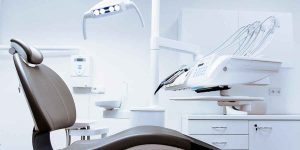Facts: More than 10 percent of kids have special needs that need to be handled the right way.
Dental treatments and dental care can be difficult for people living with disabilities. It doesn’t matter the type of disability – the dentist needs to have more than what they offer the normal patients to get through a session with these types of patients. Some patients will need a heated blanket during the procedure, while others will need to stay in the wheelchair. Whatever the case, you need to visit the dentist office a day earlier before you choose to work with them. For a patient with special needs, you don’t have to choose just any patient – you need one that understands the patient’s situation and has the skills to handle the situation.
The Wheelchair Scenario
Let us look at a typical scenario. For a person that uses a wheelchair, the visit to the dentist office in Brooklyn is just a huge hurdle in itself. The patient has to be cleaned, then prepped for the day. The caretaker has to make sure he carries the items needed for a day away from the house, including medications and crutches. The patient has to be placed comfortably in the chair, then driven to the dentist’s office. If the dentist didn’t take the time to make the office ideal for the disabled, then the caretaker has to find a way to get the patient to the waiting room. It becomes hard when the patient has to use a flight of stairs.
Comfortability can Be an Issue
When in the office, the dentist has to check the patient and come up with a diagnosis. The process might involve getting the patient out of the chair to the examination chair, which might take time and effort. Once in the chair, positioning might be an issue, and the patient has to be propped up to stay in position. This means that the procedure cannot be performed by only one person – but a few of them. At times, the patient might be in so much pain that they won’t stay in the position for long. This is why you need to find the right dentist office in Brooklyn 11203 that has an adequate staff.
Lights and Autism
Let’s say the dental team has managed to put the patient in the chair, but then you know how light affects the autistic patients. For a person who has autism sounds and lights of a routine dental exam might turn out to be unbearable. The sad thing is that only a few dental offices in Brooklyn have the right equipment to accommodate patients with special needs, which leaves many patients with little options but to leave the diseases to go untreated. This leads to a prevalence of dental issues in patients with disabilities. Visit the best dentist office in Brooklyn 11223 and talk to the dentist to understand what they have for such patients.
It Takes Time
Pediatric dentists have been found to be the best providers for special needs dentistry. This is because they are the first people that the parent goes to when he has a problem with the kid. With time, the kid gets used to the dentist and looks forward to the visits. The dentist also tries to adjust to the kid’s needs and soon finds out that he has a tailor-made solution to the needs of the kid. The dentist learns how the kid reacts and will come up with the best way to treat the child. However, you need to take your child to a qualified dentist office in Brooklyn 11224 that has all the resources that you need.
The Risk of Tooth Decay
Depending on the patient’s special needs, they might be at greater risk of gum disease and tooth decay. Additionally, people with special needs be on many medications for the issues they go through. Medications might place a huge burden on the oral health of the patient. Another huge issue is that they don’t have the ability to handle their oral hygiene on their own, and this might turn out to be a huge mistake for the patient. Some of the impersonal issues might end up making the treatment more complicated. With the resources provided by a dentist office in Brooklyn 11229, you have all it takes to eliminate the risk of tooth decay.
The First Visit
Before you can make an appointment, you need to understand what the dentist offers, what the dentist office in Brooklyn 11234 looks like, and the equipment available. Special needs dentists look at your child’s comfort, the sedation, and the use of anesthesia in making your kid comfortable. You have to ask the dentist about these aspects of the treatment plan and what they can do in a specific case. Ask the dentist about a case that they handled and how they did it. If your kid has autism, then be sure to ask if they have ever handled a similar case before and how they did it. This will give you an idea of what to expect from the procedure.
Training is Vital
It is vital that the dentist has training that is focused on special needs training. When it comes to training, you shouldn’t compromise unless you are not serious with the child’s treatment. This way, the dentist has knowledge of the equipment necessary, the techniques that can be used, the compassion needed, and the strategies that make the treatment a success. This will make sure the child receives the highest level of care at the same time, feel comfortable. The dentist also can advise you on how to handle home care so that you can help the kid heal faster. The good thing is that you can always visit the dentist office in Brooklyn 11235 for guidance whenever there is a problem.
In Closing
Special needs dentistry needs you to work with a dentist that understands what you are going through, both physically and psychologically. Call us today to talk to a dentist that has experience in special needs training.




